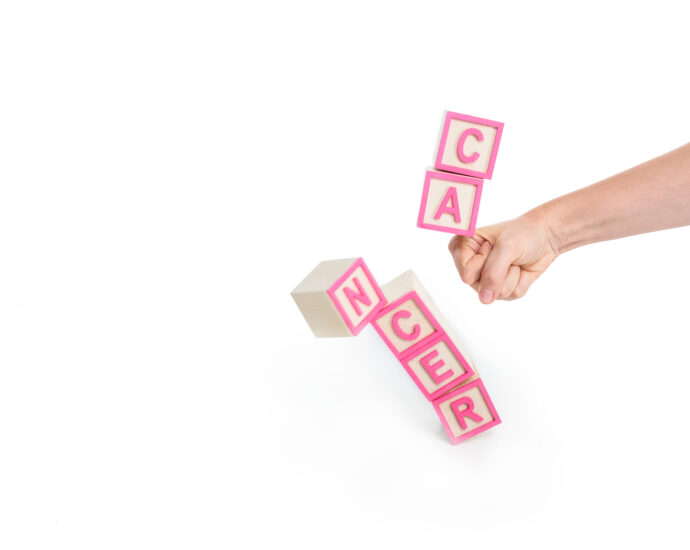Reducing your risk of cancer is a vital aspect of maintaining good health and well-being. Cancer is a formidable adversary, affecting millions of lives worldwide. While not all cancer cases can be prevented, there’s a compelling body of evidence showing that many lifestyle choices can significantly influence your chances of developing this disease. From dietary decisions to exercise habits and tobacco use, the choices you make daily can either increase or decrease your cancer risk. In this article, we’ll explore why it’s crucial to limit your chances of cancer and provide practical insights on how to adopt a healthier lifestyle that can safeguard your future well-being.
Cancer is a term used to describe a group of diseases characterized by the uncontrolled growth and spread of abnormal cells in the body. Our bodies are made up of billions of cells, and under normal circumstances, these cells grow, divide, and die in a highly regulated manner. However, in the case of cancer, this process goes awry.
Here’s a simplified explanation of what happens in cancer:
- Uncontrolled Cell Growth: Cancer starts when one cell or a group of cells begins to divide and grow uncontrollably. This can happen due to changes or mutations in the cell’s DNA.
- Tumor Formation: As these abnormal cells continue to divide, they form a mass or lump of tissue called a tumor. Tumors can be benign (non-cancerous) or malignant (cancerous).
- Invasion and Metastasis: In malignant tumors, the cancer cells have the ability to invade nearby tissues and even spread to other parts of the body through the bloodstream or lymphatic system. This process is known as metastasis.
Cancer can occur in virtually any part of the body and may take many different forms. There are over 100 different types of cancer, and they are typically named after the organ or type of cell in which they originate. Common types of cancer include breast cancer, lung cancer, colon cancer, and prostate cancer.
The exact cause of cancer can be complex and often involves a combination of genetic, environmental, and lifestyle factors. Some risk factors, like family history and genetic predisposition, are beyond our control. However, many cases of cancer are linked to lifestyle choices, such as smoking, an unhealthy diet, and lack of physical activity.
Early detection and advancements in cancer treatment have significantly improved the chances of survival for many cancer patients. Regular check-ups, screenings, and a healthy lifestyle can play a crucial role in cancer prevention and early intervention.
Let’s talk about some lifestyle habits that can help reduce your risk of cancer. Cancer prevention is an important topic, and there are many steps you can take to lower your chances of developing this disease.
Here are some easy-to-understand tips:
- Eat a Balanced Diet: Fill your plate with colorful fruits and vegetables. These foods are packed with antioxidants and other nutrients that can help protect your cells from damage.
- Limit Processed Foods: Try to cut down on processed foods like sugary snacks, fast food, and sugary drinks. They can contribute to weight gain and increase cancer risk.
- Watch Your Portions: Be mindful of portion sizes. Eating in moderation can help you maintain a healthy weight, which is a key factor in cancer prevention.
- Stay Active: Regular physical activity, like walking or biking, can help maintain a healthy weight and reduce the risk of several types of cancer.
- Don’t Smoke: If you smoke, quitting is one of the best things you can do for your health. Smoking is a leading cause of many different types of cancer.
- Limit Alcohol: Excessive alcohol consumption is linked to an increased risk of certain cancers. If you drink alcohol, do so in moderation.
- Protect Your Skin: Use sunscreen and avoid tanning beds to protect your skin from harmful UV rays. Skin cancer can often be prevented by sun safety.
- Stay Hydrated: Drinking plenty of water is essential for overall health. It helps with digestion and keeps your body functioning properly.
- Get Vaccinated: Some vaccines can protect against specific types of cancer. For example, the HPV vaccine can prevent certain types of cervical and throat cancers.
- Regular Screenings: Don’t skip your regular check-ups and cancer screenings. Early detection can greatly improve the chances of successful treatment.
- Manage Stress: Chronic stress can weaken your immune system. Find healthy ways to manage stress, like meditation, yoga, or hobbies you enjoy.
- Know Your Family History: Being aware of your family’s cancer history can help you and your healthcare provider determine if you’re at higher risk for certain cancers.
The importance of lowering your risk for cancer cannot be overstated. While cancer can strike anyone, anywhere, at any time, the power to reduce your vulnerability to this disease lies largely in your hands. By making mindful choices regarding what you eat, how active you are, and whether you engage in risky behaviors like smoking or excessive alcohol consumption, you can create a protective shield around your health. Preventive measures such as regular screenings and vaccinations also play a crucial role in early detection and defense against certain types of cancer. With each healthy choice you make, you not only increase your chances of living a longer and healthier life but also contribute to a brighter, cancer-resistant future for yourself and the generations to come. So, take charge of your well-being, lower your risk, and let your health be your greatest asset in the battle against cancer.
Page Contents
READ MORE: Foods That Lower Cancer Risk
Sources:
https://healthsurgeon.com/quiz/alcoholabuse/
https://www.mayoclinic.org/healthy-lifestyle/adult-health/in-depth/cancer-prevention/art-20044816
https://siteman.wustl.edu/wp-content/uploads/2022/04/780619_SCC-PECaD-General-8-Ways_HI.pdf
